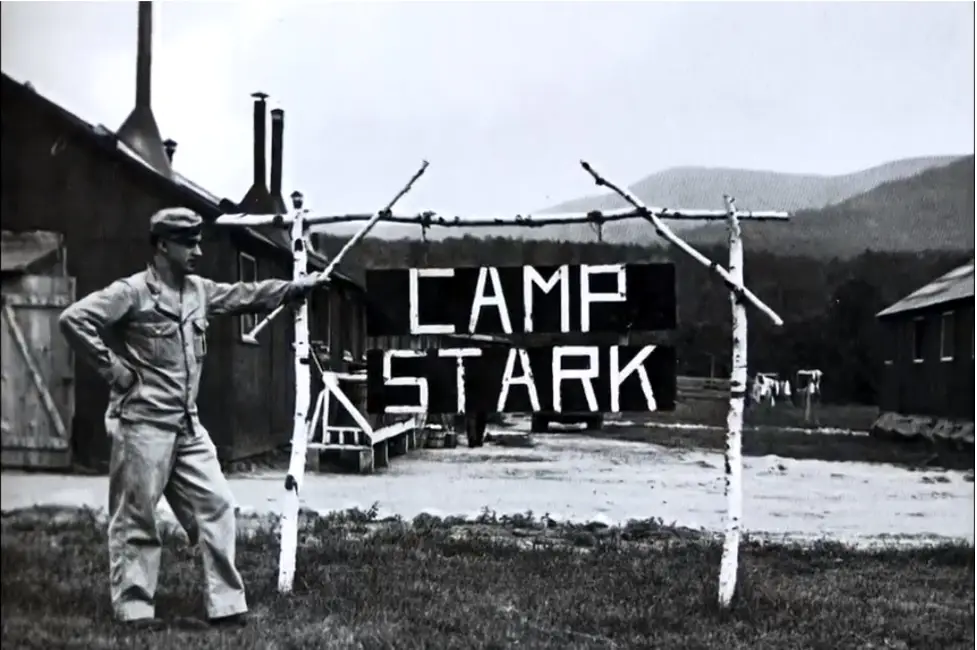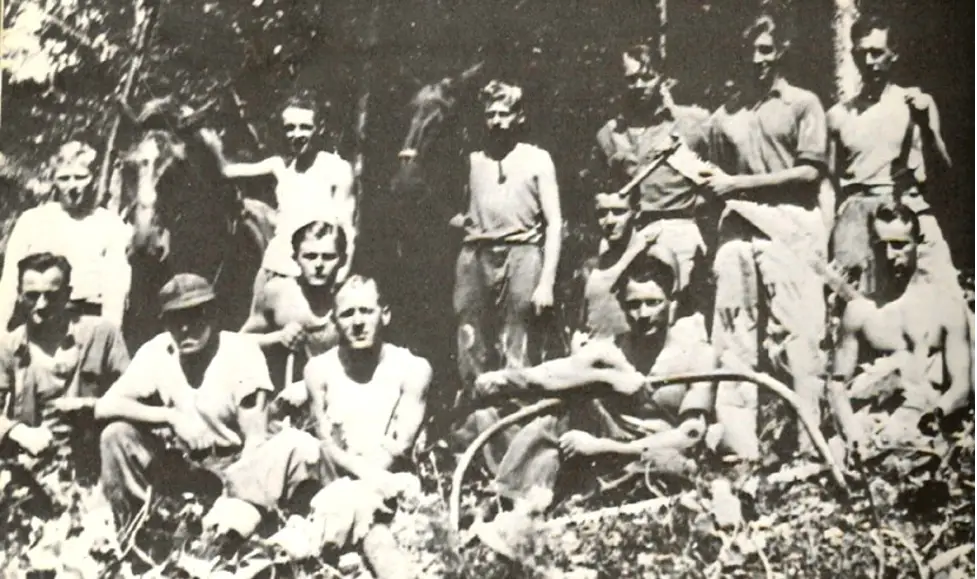During World War II, the remote woods of New Hampshire concealed a small but significant piece of wartime history: a prisoner of war (POW) camp operational from 1944 to 1946 that housed German POWs captured in North Africa and Normandy, France. This lesser-known camp, nestled deep in the forests, served as a labor camp rather than a high-security facility, reflecting the unique dynamics and challenges of POW management during the war. It was called Camp Stark.

A Remote Labor Camp
The camp, located far from major urban centers, was not designed for high security. Its isolation in the dense woods meant there weren’t many immediate options for escape, though it was not entirely escape-proof. One notable escapee was Franz Bacher, a German POW who managed to flee the camp. Bacher made it to New York but was eventually recaptured. This camp held a unique position as the only POW facility in New Hampshire, adding to its distinct historical footprint.
Labor for Pulp Production
The primary work assigned to the prisoners was labor-intensive and crucial for the local economy. They were employed by the Brown Company, a paper firm that required tree cutting for pulp production.
In line with the Geneva Conventions, which set standards for the treatment of POWs, the U.S. adhered to strict guidelines to ensure humane treatment. This included providing POWs with adequate food, shelter, and medical care. The prisoners were paid in scrip, essentially a form of currency valid only within the camp, which could be saved or used to purchase items from the prison canteen. Similar systems were in place at other camps, such as one in Louisiana, reflecting a broader effort to maintain standards even in wartime conditions.

Attempts at Post-War Stay
After the war ended, there were attempts by some German prisoners to remain in the United States, seeking to build new lives away from their past. However, the War Department returned most POWs back to their home countries as part of the post-war agreements.
Reunions and Reflections
Years after the camp closed, former prisoners and locals held reunions, providing a space to reflect on their shared experiences and the unusual chapter of their lives spent in New Hampshire. These reunions offered a glimpse into the personal and collective histories that had unfolded in the otherwise tranquil woods of New England.
This World War II New Hampshire POW camp serves as a reminder of the complex realities of wartime life and the often-overlooked stories of those who lived through them. Its legacy is a testament to the resilience of the human spirit and the intricate interplay of wartime protocols and human interaction.
Sources:
A German POW Escapes the WWII Prison Camp in Stark, NH | New England Historical Society
Old Woods and Old Wars | New Hampshire Magazine
POWs Paid Labor for Agriculture in U.S. | Louisiana Forestry Association
Stark Decency: German Prisoners of War in a New England Village | Allen V. Koop
Wartime Internment Camp Binds German POWs, American Guards | Los Angeles Times





